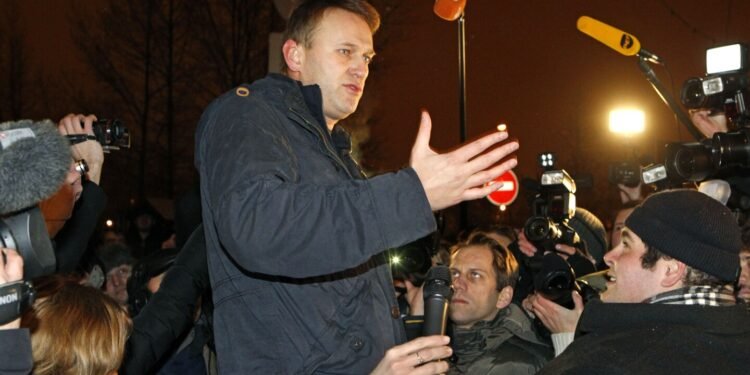Alexei Navalny, Russia’s top opposition leader and President Vladimir Putin’s fiercest foe, died in prison on Friday, a statement from the Federal Penitentiary Service said.
Navalny, who was serving a 19-year sentence on charges of extremism, felt unwell after a walk and collapsed, it said. The politician’s team had no immediate confirmation of his death.
Navalny was moved in December from his former prison in central Russia to to a “special regime” penal colony — the highest security level of prisons in Russia — above the Arctic Circle.
In a span of a decade, he went from being the Kremlin’s biggest foe to Russia’s most prominent political prisoner.
Here’s a look at key events in Navalny’s life, political activism and the charges he has faced through the years:
June 4, 1976 — Navalny is born in a western part of the Moscow region.
1997 — Graduates from Russia’s RUDN university, where he majored in law; earns a degree in economics in 2001 while working as a lawyer.
2004 — Forms a movement against rampant overdevelopment in Moscow, according to his campaign website.
2008 — Gains notoriety for alleging corruption in state-run corporations, such as gas giant Gazprom and oil behemoth Rosneft, through his blogs and other posts.
2010 — Founds RosPil, an anti-corruption project run by a team of lawyers that analyzes spending of state agencies and companies, exposing violations and contesting them in court.
2011 — Establishes the Foundation for Fighting Corruption, which will become his team’s main platform for exposing alleged graft among Russia’s top political ranks.
December 2011 — Participates in mass protests sparked by reports of widespread rigging of Russia’s parliamentary election, and is arrested and jailed for 15 days for “defying a government official.”
March 2012 — Following President Vladimir Putin’s reelection and inauguration, mass protests break out in Moscow and elsewhere. Navalny accuses key figures, including then-Deputy Prime Minister Igor Shuvalov and Chechnya’s strongman leader, Ramzan Kadyrov, of corruption.
July 2012 — Russia’s Investigative Committee charges Navalny with embezzlement involving Kirovles, a state-owned timber company in the Kirov region, while acting as an adviser to the local governor. Navalny rejects the allegations as politically motivated.
December 2012 — The Investigative Committee launches another probe into alleged embezzlement at a Navalny-linked Russian subsidiary of Yves Rocher, a French cosmetics company. Navalny again says the allegations are politically motivated.
2013 — Navalny runs for mayor in Moscow — a move the authorities not only allow but encourage in an attempt to put a veneer of democracy on the race that is designed to boost the profile of the incumbent, Sergei Sobyanin.
July 2013 — A court in Kirov convicts Navalny of embezzlement in the Kirovles case, sentencing him to five years in prison. The prosecution petitions to release Navalny from custody pending his appeal, and he resumes his campaign.
September 2013 — Official results show Navalny finishes second in the mayor’s race behind Sobyanin, with 27% of the vote, after a successful electoral and fundraising campaign collecting an unprecedented 97.3 million rubles ($2.9 million) from individual supporters.
October 2013 — A court hands Navalny a suspended sentence in the Kirovles case.
February 2014 — Navalny is placed under house arrest in connection with the Yves Rocher case and banned from using the internet. His blog continues to be updated regularly, presumably by his team, detailing alleged corruption by various Russian officials.



 Pakistan Rupee Exchange Rate
Pakistan Rupee Exchange Rate





